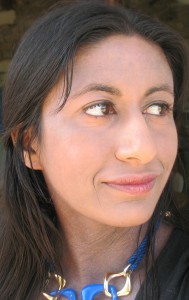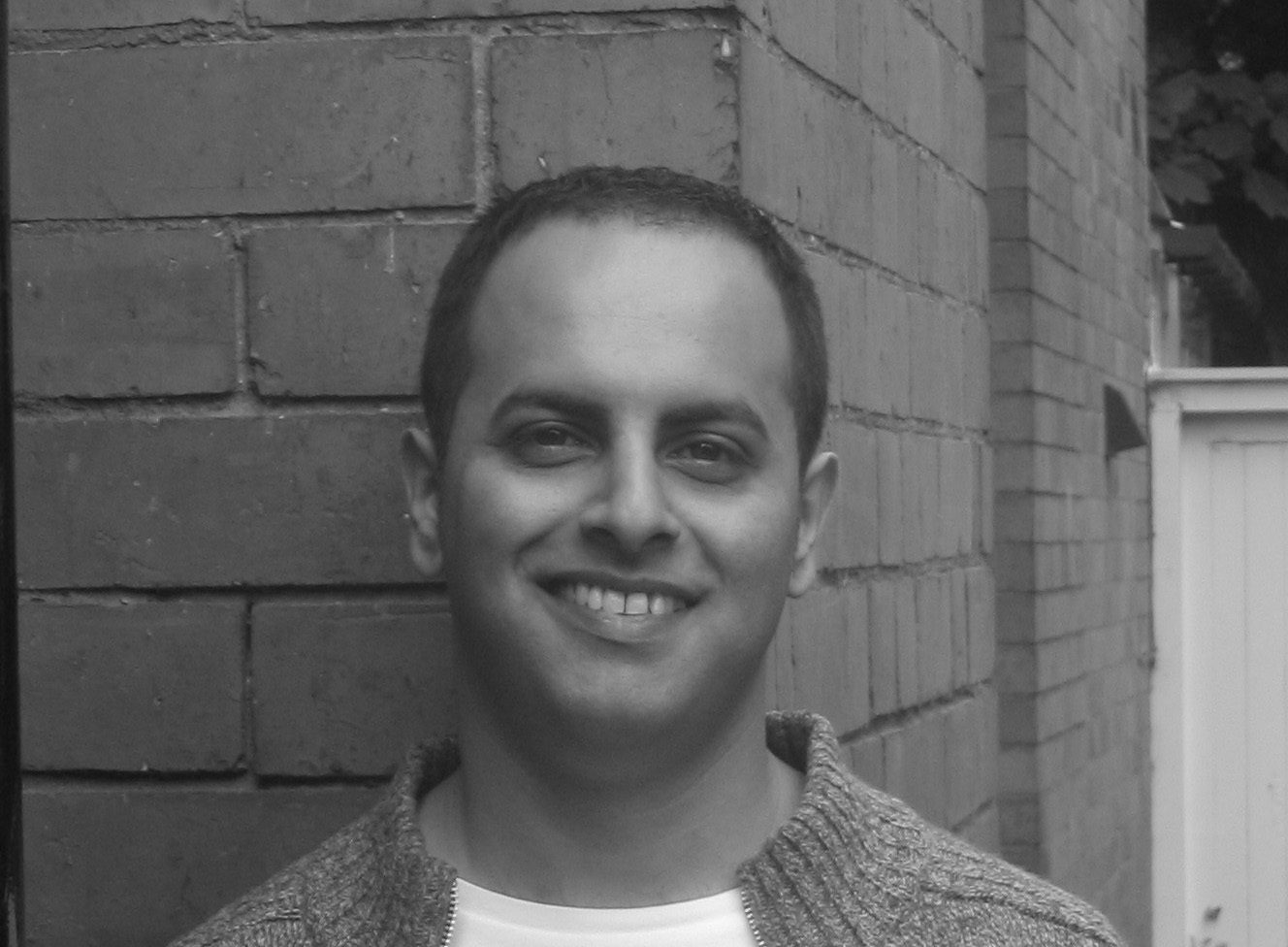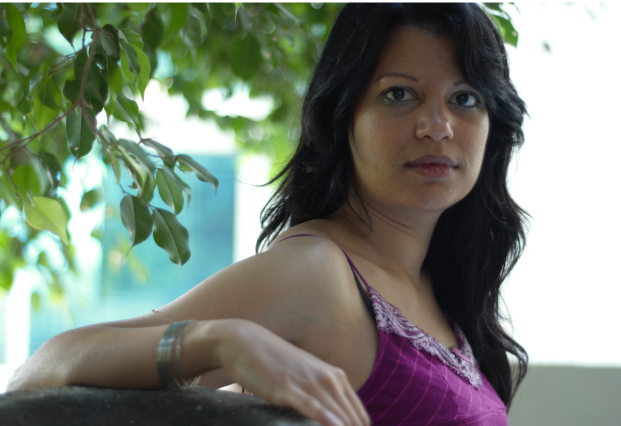
What was the inspiration for your novel?
The themes for THE WAY THINGS LOOK TO ME grew out of my previous work, the process of writing BITTER SWEETS and CORNER SHOP. In those novels I looked at the impact of deception on family relationships, and the unexpected tragedy of achieving dreams too early in life, in the context of extended, rather dysfunctional families; in THE WAY THINGS LOOK TO ME, I extended the reach and complexity of these themes, looking at how duty can lead to resentment within a family, at the effects of unequal treatment on children’s sense of self-worth, and how family obligation can prevent someone trying to reach for their own dreams. In BITTER SWEETS my focus had been on the inter-generational relationships, in CORNER SHOP on parent-child relationships, so for THE WAY THINGS LOOK TO ME, it felt natural to focus on sibling relationships, and sibling rivalry. I wanted to explore the subtlety and emotional richness of the brother and sister relationships in the novel – everything that makes them different, and everything that they share.
As a real family person, I loved the sibling dynamic and how seemingly “normal” and “perfect” families can be damaging if not just plain mean to each other – what experiences of family life did you draw upon when writing the book?
The main experience of my own family life that I used, was that of being the youngest of three siblings, like Yasmin; this gave me some valuable insight into her relationships with her brother and sister. As the “baby” of the family, I was always aware that I had a slightly privileged position, and as a toddler, I had the lion’s share of my mother’s attention, because my older sisters were already at school when I was born. With Yasmin, I magnified the intensity of her relationship with her mother, to the near exclusion of her siblings, as Yasmin’s special needs meant that she was always her mother’s focus.
What’s family life like for you and do you think that writers are generally “family friendly” people?
I can’t speak for other writers, as I don’t know too many, but I’m very family focussed – one of the reasons I love being a writer is because it allows me to work from home and spend time with my children (I have two little boys, aged four and two). My other friends with young children have to put them in nursery during the working week, and have very mixed feelings about it, as even if they love their jobs, they feel that they are “missing out” on watching their children grow up. I’m lucky that I don’t have to compromise my work for my family life, or vice versa.
When we first interviewed you, you’d just written your debut novel, BITTER SWEETS, how have you grown as an author since then? And do you think having your own family during this time had an impact on your writing?
I hope that I’ve grown with each novel; I aim to learn from the experience of writing my books, and try hard to make each book better than the last. I wrote BITTER SWEETS while I was pregnant with my first child, and the experience of being a mother definitely informed the writing of CORNER SHOP, and is what led me towards the theme of parent-child relationships in that novel. I would have found it much harder to write about the Delphine’s rather obsessive love for infant Lucky, and Zaki’s ambiguous love for his son Jinan, if I hadn’t experienced parenthood myself.
The family is always at the heart of what you write about – but in THE WAY THINGS LOOK TO ME, you bring in other factors, such as Lila’s eczema and self harm, and Yasmin’s AS – what research went into ensuring that these experiences were portrayed as “authentic” as possible?
Lila’s eczema is my own, albeit exaggerated, as I have good days and bad days, but used some of my very worst symptoms to dramatise Lila’s skin condition; using it as an outward, physical expression of her inner turmoil, just as her self harming is. I have suffered from eczema since I was very young, and already knew a lot about the condition from first hand experience. By contrast, Yasmin’s AS involved a great deal of research on my part – probably too much research, as I felt crippled by the knowledge and detail I had taken in, and it took me several months before I felt I could start writing, as I was worried that I would end up simply fictionalising other people’s real life experiences. Once I had absorbed the different ways in which someone who is non-neurotypical experienced the world, I tried to put myself in Yasmin’s shoes, and imagine what it would be like to see the world as she did, from seeing the colour in music, to taking note of the complicated streams of consciousness one might have when doing some mundane domestic task.
Do you feel that your novel will be welcomed by people with AS?
THE WAY THINGS LOOK TO ME has so far had a wonderfully positive response from the AS community. Mothers of children with AS have written to me, saying how much they loved the book, and how glad they are that someone has written about what it is like to have a child with AS. Action for Autism gave the book a glowing review, comparing it favourably with Mark Haddon’s best-selling “Curious Incident”, and said: “Farooki has such a firm grasp of character and plot that she succeeds in telling a story that is engaging and convincing to the end…she makes everything count in a tale that combines familial dysfunction with an honest appraisal of personal disability. It is an important book.”
I’m obviously delighted at how well it has been received, as I was very concerned that the portrayal of AS in the novel should be both accurate and politically correct, while giving an insight to readers on what it is like to be “non neurotypical”.
You appear to be a writer who takes the art of writing very seriously, what’s the secret of your success? And do you have a strict writing ritual?
I’m not sure if I have a secret, as such, but I do write all the time. I write rather obsessively – I don’t write simply because it’s what I do for work, or even for the joy of it – I write because I must. When I’m working on a book, particularly on the first draft of one, I sometimes don’t do anything else, apart from spending a few hours a day looking after my children. I let washing and dishes and bills pile up, and forget to eat or sleep, so I’m fortunate that I have a sympathetic husband, who lets me lock myself away in my imaginary worlds. I write for hours every day, some days just managing a few pages I’m happy with, some days I can end up with twenty, although that doesn’t happen too often.
And forgive us for talking about doom and gloom, but have your experiences of being a writer changed during the recession?
The only disadvantage of being a writer is the erratic income, and the recession obviously hasn’t helped; we keep a tight rein on costs, and I’ve not gone to a hairdresser or bought new clothes for years, because I’m not really bothered about that sort of thing, and I’d rather spend the money on my children. Even though times are tough, like every writer, I’m aware of how lucky I am being able to make a living by doing something that I love.
So what’s planned for the book in terms of promotion?
I’ve already done lots of talks in libraries and bookshops, and the odd radio interview, including one on Nikki Bedi’s BBC Asian Network show. I’ve also been extraordinarily fortunate, as THE WAY THINGS LOOK TO ME was selected by the The Times as one of the Top 50 Paperbacks of 2009! Apart from being very flattering, this also means that the book will be part of a WH Smith promotion until Christmas, which is great news.
What can we hope to see of you and your work in the future? Are you working on another book?
I’ve just completed my fourth novel, HALF LIFE, which will be coming out in the UK and in the US in April 2010 and am still putting some finishing touches to it – writing it was exhilarating, but exhausting, and I feel an absurd sense of regret that it’s almost done, and will soon be out of my hands. I’m consoling myself by researching some ideas for my fifth novel.
Finally, what do you think will be the next milestone in your career and what do you hope the future will bring?
In terms of career, writing is a solitary business, and I’ve missed the stimulation of colleagues over the last few years, and so I’ve begun teaching the Masters in Creative Writing at Canterbury Christ Church University, and have also become the Ambassador for Relate’s Family Counselling Service. With regard to the future, I hope that I’ll be able to keep writing and publishing my books, and perhaps win an award one day. But I’m not sure that I’ll be able to keep up the pace of writing that I’ve managed so far, as I’ve written a book a year for the last four years! Especially as my husband and I recently found out that we’re expecting twins! The babies are due early next year, so with four children under five years old, I suspect that the immediate future will involve lots of nappy changes, broken nights and early mornings!

